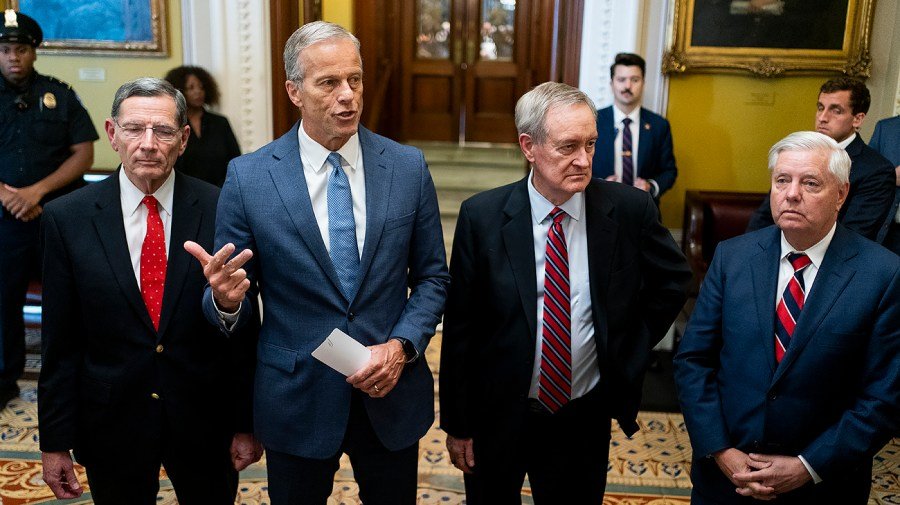Some moderates expressing concerns about the Senate bill’s stricter crackdown on state-levied provider taxes will be under enormous pressure to pass the bill Wednesday and send it to President Trump’s desk by his self-imposed July 4 deadline.
Any changes in the House would force the Senate to pass the bill once again, which senators want no part of after a grueling vote-a-rama this week.
There have been complaints from members of the Freedom Caucus about how much the bill adds to the debt and among moderates about the provider taxes.
Rep. Andy Harris (R-Tenn.), the chairman of the conservative House Freedom Caucus, and Rep. Ralph Norman (R-S.C.), a member of the group, both announced Tuesday that they will vote against a procedural rule — which sets parameters for debate — for the megabill because of their opposition to several parts of the sprawling package.
Rep. David Valadao (R-Calif.) over the weekend reiterated his claim that he will not support any bill that “makes harmful cuts to Medicaid, puts critical funding at risk or threatens the stability to healthcare providers” in his district.
Rep. Don Bacon (R-Neb.), who recently announced he will not seek re-election, has also expressed unease about the scale of the provider tax cuts in the Senate version.
Refresher: States use provider taxes to fund large portions of their Medicaid programs, and hospital groups have been warning that the Senate’s version would have dire consequences for rural facilities.
The Senate bill would force Medicaid expansion states to lower their current rate every year beginning in 2028, until it hits 3.5 percent. The House-passed version froze all states at their current rate — which hospitals are pressing for. They initially weren’t thrilled with the House language, but it’s now the best option available for them.

